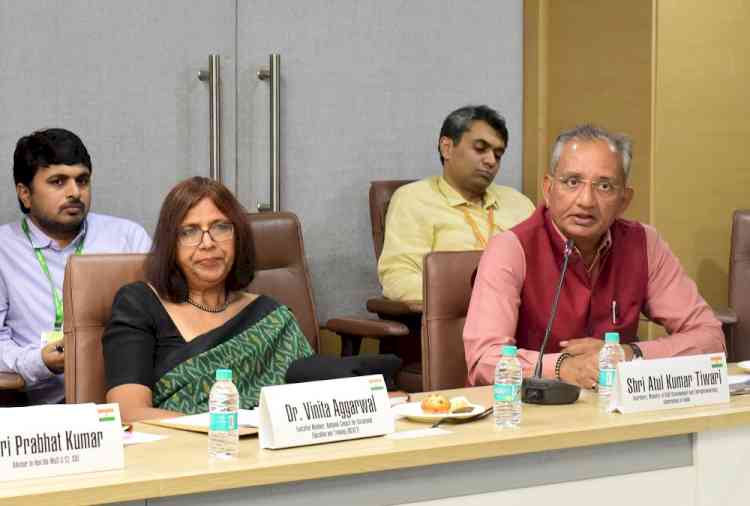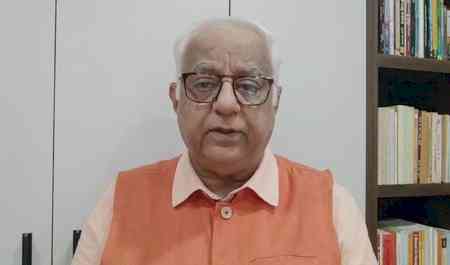Signify launches India’s first tailor-made 3D printed luminaires for circular economy
Company sets up 3D printing facility in Vadodara and a Design lab in Noida

Delhi: Signify, the world leader in lighting, today launched India’s first tailor-made 3D printed luminaires. This highly flexible and more sustainable form of manufacturing, using a 100% recyclable polycarbonate material, enables the company to produce luminaires that have bespoke designs or are tailored to customer’s exact needs and recycled at the end of their life, supporting a circular economy.
Currently, Signify is the only major lighting manufacturer to be producing 3D-printed lighting products on an industrial and commercial scale in India. In alignment with the Indian government’s agenda of ‘Make in India’ and ‘Atmanirbhar Bharat’, the company has set up a 3D printing manufacturing facility at its existing lighting factory in Vadodara, in addition to a design lab at its R&D center in Noida where interior designers, architects and lighting designers can experience the technology first-hand and see their luminaire being printed in front of their eyes. They can also work together with Signify’s design experts to create a truly bespoke design that meets their specific requirements.
Signify’s investment in 3D printing further illustrates the company’s commitment to better serving its customers while reducing their, and its own, carbon footprint and to responsible consumption and production (SDG12) with products that can be reprinted, refurbished, reused or recycled. It is a key element of Signify’s commitment to doubling its circular revenues to 32% in 2025, as part of the Brighter Lives, Better World 2025 program launched in September 2020. 3D Printing is a Triple Bottom Line Technology – its good for the climate, consumers and companies.
A 3D printed luminaire is also good for our planet as it has a 47% lower carbon footprint than a traditionally manufactured metal luminaire, excluding electronics and optics. The final product is also two-thirds in weight compared to a conventional luminaire, which ultimately translates to a 35% carbon emission reduction during shipping. Nearly every component of these luminaires may be reused or recycled at end of life and repurposed into new designs, thereby supporting the concept of a circular economy.
Switching to 3D printing of luminaires can also help companies meet their sustainability goals and allows them the flexibility to co-create their lighting products with endless options for customization. Moreover, customers can also refresh their lighting design by returning their luminaires to have them recycled and reprinted in newer designs, enabling them to stay current and topical. As these luminaires are printed on-demand and as per specific requirements of the customer, there are no additional costs incurred for any adjustments or ceiling modifications during installation.
Commenting on the launch, Sumit Joshi, Vice Chairman and Managing Director, Signify Innovations India Limited said, “We are proud to be the first lighting manufacturer to produce 3D printed luminaires in India on an industrial scale in alignment with the Indian government’s agenda of a self-reliant India. It also reinforces our position at the forefront of lighting and sustainable innovation. Printing luminaires provides a more flexible, fast and environmentally friendly way to manufacture as we can create new, or customize existing designs, that fulfill customer needs quickly without huge investments and long development cycles. Customers can have their ideas brought to life in a matter of days rather than months and printing requires less energy.”
Signify has also set up 3D printing facilities in other parts of the world including United States, Belgium, the Netherlands and Indonesia. The company has already secured several customers like Marks and Spencer (M&S), Albert Heijn, SAS, Total and Praxis for these products.


 cityairnews
cityairnews 








